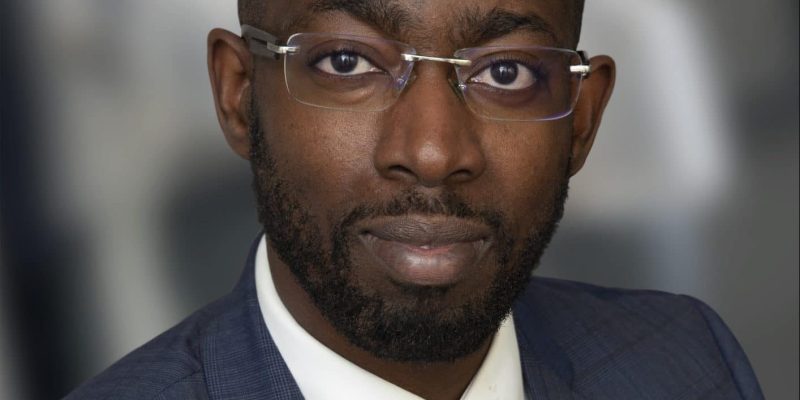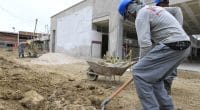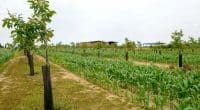Over the next few years, the Investment Fund for Developing Countries (IFU) will double its investments in sustainable development in the countries of the South, half of which will be in Africa. The announcement was made on the sidelines of the 78th General Assembly of the United Nations (UN), held from 19 to 26 September 2023 in New York, United States of America. Faced with the climate crisis and the need for development on the African continent, the IFU is ready to take more risks for greater impact, according to its Director of Investments Landry Ahouansou.
Over the next few years, the Investment Fund for Developing Countries (IFU) will double its investments in sustainable development in the countries of the South, half of which will be in Africa. The announcement was made on the sidelines of the 78th General Assembly of the United Nations (UN), held from 19 to 26 September 2023 in New York, United States of America. Faced with the climate crisis and the need for development on the African continent, the IFU is ready to take more risks for greater impact, according to its Director of Investments Landry Ahouansou.
Jean Marie Takouleu: The Danish authorities recently announced the reform of the Investment Fund for Developing Countries (IFU). This process has resulted in an increase in its investments in favour of sustainable development. It is the first development finance institution (DFI) to be reformed since the Summit for a New Financial Deal organised in Paris in June 2023. What justifies such a reform of the IFU?
Landry Ahouansou: The IFU is a 100% Danish-owned DFI. The Danish government’s overall policy is geared towards ecological transition. And today, IFU’s strategy is based on two pillars: building a green economy, and building a fair and inclusive economy. Through this reform, the Danish government wants to increase its support for the ecological transition, and at the same time for investments that improve the living conditions of people in developing countries.
We are delighted that the Danish government has recognised the IFU as an important tool for financing development, and has strengthened our capacity by injecting a further €2 billion into emerging countries, 50% of which will go to Africa.
Among the parts of the continent most affected by climate change are the Horn of Africa, Southern Africa and the Sahel, which are facing drought. This is exacerbating food insecurity in the Horn of Africa, where more than 43 million people are at risk, according to the United Nations Population Fund (UNFPA). The IFU will increase its climate finance from €268 million a year (in 2022) to between €670 million and €940 million by 2030. How will this funding be organised in Africa?
Generally speaking, the aim of DFIs is to use public funds to catalyse private funding. At IFU, we are not guided by a country priority, but focus on impact. This means identifying projects that contribute to building a greener, fairer and more inclusive economy. We have to recognise that some countries on the continent are more affected than others. We have the High-Risk High Impact facility, which enables us to channel financing to the private sector. In countries with higher risks, we expect a greater impact. Through this instrument, IFU agrees to sacrifice a little return on investment while remaining profitable, but in exchange for impact in countries where the need is relatively greater.
So, you are investing in climate change mitigation. But is it possible for a DFI to invest in adapting to climate change?
Yes, it is possible. In fact, we are looking for projects in this area. So, if tomorrow we have a partner who comes to us with a project structured to balance impact and commercial profitability, that would clearly be interesting.
Unlike other DFIs that focus on concessional loans to governments in Africa, IFU and other development banks in the Nordic countries tend to invest in businesses and public-private partnerships (PPPs). What justifies this choice?
It’s not a binary choice. Denmark works both ways. There is the IFU, which looks after private sector financing, and the Danish International Development Agency (DANIDA), which is now called DANIDA Sustenable Infrastructure Finance (DSIF), also funded by the Danish government, but which looks after the public sector. It is true, however, that even in the public sector today, the approach is different, as it is no longer a question of “aid”, but of promoting partnerships and structuring viable projects with governments.
That said, the role of the private sector must remain decisive, and the IFU is making a great deal of effort with regard to this sector. For example, in June 2023 we closed the investment period of the Danish SDG Fund I that we manage. The Danish SDG Fund I is an 800-million-dollar fund, around 40% of which is public resources that have been used to attract institutional investors – notably from the private sector – for the remaining 60%, with a view to supporting the private sector in emerging countries. This is a fairly unique model in the world of DFIs, and we are working to raise a second fund of a similar size in the coming months.
IFU invests on a continent beset by political instability, with coups d’état on the rise in Gabon, Niger, Burkina Faso, Mali and elsewhere. At the same time, the Sahel is facing insecurity caused by terrorist movements that have proliferated since the fall of former Libyan president Muammar Gaddafi in 2011. Isn’t it riskier to invest in such an environment?
The easy answer would be yes. You have to realise that IFU is venture capital. Almost 80% of our investments are in the form of equity stakes in companies. This means that risk is in our DNA. This means that risk is in our DNA. These equity investments enable the companies in which we invest to raise debt later on to finance their projects. We will continue to take this risk as long as our investments generate an acceptable impact-risk-return balance.
So how do you guarantee your investments?
Compared to the situation you described on the continent, it’s clear that the general level of risk has increased. You only have to look at interest rates and the macroeconomic environment, which has been very volatile recently. All this reflects the risk we are talking about. We feel it in our investment portfolio. And as we often say in our sector: “the best guarantee for a project is the project itself”. So, in our new transactions, we work with the partner to de-risk the operation as much as possible through the project itself and the way it is structured. For residual risks that do not necessarily depend on the project, there are a number of instruments available today, in particular guarantees, which we take out on a case-by-case basis.
IFU finances many renewable energy projects, notably in Malawi with the 20 MWp Golomoti solar power plant already in service. In addition to these investments, could your development finance institution invest in a gas-fired power plant in the next few years?
No. The Danish government’s ambition is to work towards accelerating the energy transition. In this context, we only invest in renewable energies.
Several investors and some decision-makers see gas as a transitional energy. What is your opinion on this issue?
We have to respect each other’s positions. The Danish government is currently considering the issue and the choice is very clear. It’s to go full speed ahead with renewable energies. The IFU is making capital investments in several renewable energy projects. And when you make equity investments, you have to think about the exit. In other words, how do you sell the asset? Today, we manage to create much more added value through investments in renewable energies than in fossil fuels.
Also, the production costs of green energies are continuing to fall, since the cost of technology is also falling. In some countries, we are beginning to be able to challenge fossil fuels. It’s true that gas is seen by some as a transitional energy. But when you think about it further, what counts at the end of the day is being able to bring the cheapest energy to people. And if we succeed in bringing this cheaper energy through renewables, we should consider it a winning bet for people and the planet. Otherwise, it’s a strategic choice to make. A choice for the future. There are issues that cannot wait.
Interview by Jean Marie Takouleu





